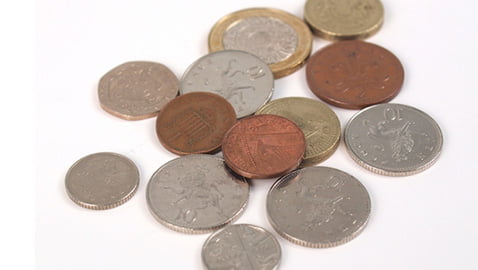
Fortysomethings are the least likely to have benefitted from the economic growth of the last 12 months, according to research from Halifax.
While the financial situation of people in Great Britain has improved overall, more than a third (34%) of those in their 40s say they now feel worse off than they did in 2013, and more than half (53%) of this age group admit to having run out of money before payday in the last year. This compares to a national average of 31% and 43% respectively.
The research analyses spending patterns and attitudes towards money among different generations. It reveals that people in their 40s are the least likely age group to say they feel organised when it comes to managing their money day to day, the least likely to have money put aside for a rainy day, and the least likely to be able to say they always pay their bills on time.
Anthony Warrington, director of Halifax Current Accounts, said: “The improved economic outlook masks considerable variation in how different age groups are coping financially. While there has been an improvement in people’s finances overall, those in their 40s are most likely to still be feeling the squeeze. People in their 40s face a wide range of demands on their finances, often juggling the cost of supporting children, with paying a mortgage, and trying to save for their own future.
“This research highlights that although the outlook looks brighter overall, the recovery is not evenly spread. As such, people need to maintain a close watch on their finances and manage their budgets carefully in order to reduce the risk of surprises at the end of the month.”
Overall, more than a fifth (22%) of people have seen their finances improve over the last 12 months, compared to just 13% who said the same in 2013. Similarly, the percentage of people who admit to having run out of money at least once before the end of the month in the last year has also come down from 46% in 2013 to 43% in 2014.
However, more than half (53%) of people in their 40s still say they ran out of money before the end of the month at least once in the last year. And while this has fallen (from 57% in 2013); the percentage who say they ran out of money every month has actually increased to 13% from 11% in 2013.
When it comes to managing their money day-to-day, the research shows an overall change for the better, with small improvements to people’s financial situations.
A quarter (25%) of people said they had money left at the end of every month (compared to 22% in 2013.), and 73% said they had money left over at the end of the month at least once (compared to 71% in 2013). Those aged over 75 were the most likely to say they always had money left at the end of the month (49%), with just 18% of those in their 20s, 30s and 40s able to say the same.
Among those who did have money left at the end of the month the most common use of this was to fund savings, with 68% of people doing so in the last year compared to just 20% who chose to pay off debts such as credit cards and loans.
Those most likely to save the money were those aged 70-75 (78%). Those most likely to have paid off debts with any spare money were those in their 20s (29%)